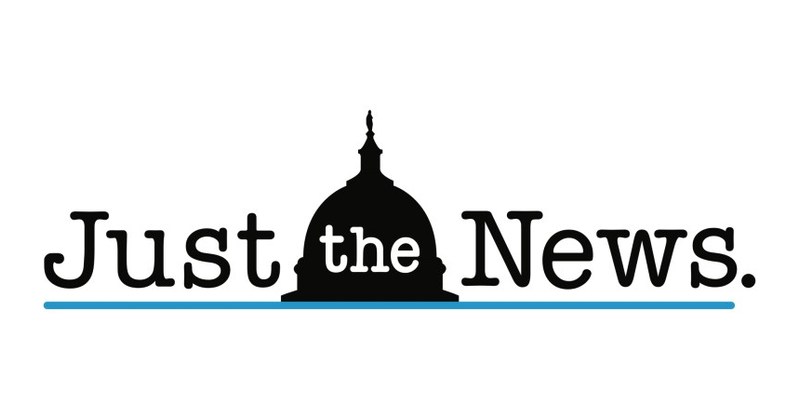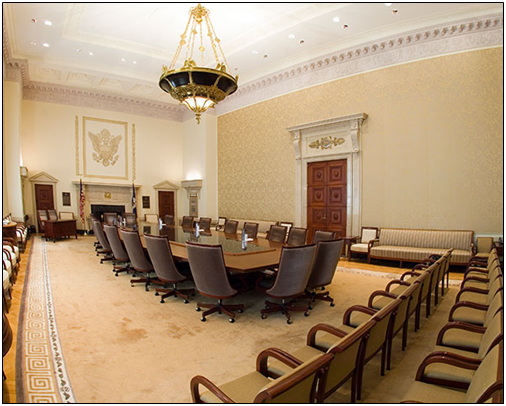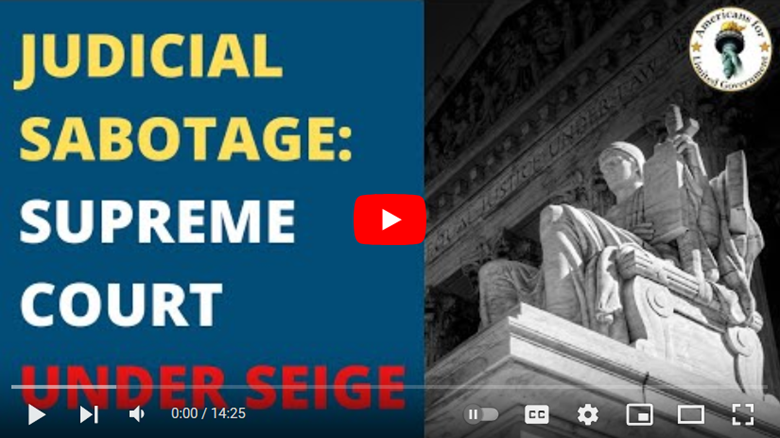May 5, 2022
Permission to republish original opeds and cartoons granted.
Has the Fed already lost the war on inflation?
By Robert Romano
The Federal Reserve on May 4 has increased its key interest rate, the Federal Funds Rate, from 0.25 to 0.5 percent, to 0.75 percent to 1 percent, a half a percentage point, and the highest rate hike since the year 2000.
“With appropriate firming in the stance of monetary policy, the Committee expects inflation to return to its 2 percent objective and the labor market to remain strong,” the central bank wrote in its statement.
On the other hand, the Board of Governors contradictorily added that “The invasion of Ukraine by Russia is… creating additional upward pressure on inflation and are likely to weigh on economic activity. In addition, COVID-related lockdowns in China are likely to exacerbate supply chain disruptions. The Committee is highly attentive to inflation risks.”
So, which is it? Is the Fed’s half a percentage point rate hike and additional rate hikes expected throughout the year an “appropriate firming” of monetary policy, which will bring the inflation rate down to 2 percent soon all on its own?
Or is inflation actually being exacerbated by the continuation of the Covid supply chain crisis that the war in Ukraine is only worsening?
Since neither the war in Ukraine nor the Covid and supply chain disruptions appear to be ending any time soon as consumer and producer inflation remain elevated at 8.5 percent and 11.2 percent, respectively, there appears to be a definitive disconnect from the Fed’s policy posture and reality on the ground. Which, of course, has been the problem the entire time.
If anything, it seems more likely that the current inflation will overheat the economy and cause a recession all on its own — which would bring down the inflation rate some — long before the Fed’s tepid rate hikes do so.
So, maybe the Fed has already lost the war on inflation.
Throughout most of modern economic history, the Fed has kept its own interest rate above consumer inflation, on average by 1.09 percent since 1954, according to data compiled by the Federal Reserve Board of Governors and the Bureau of Labor Statistics.
Instead, today the spread between the Federal Funds Rate and inflation is about -7.5 percent. And yet, consumer inflation has been above 5 percent since June 2021. They had enough time to respond, they just didn’t. It knew that Congress had spent and borrowed more than $6 trillion to combat Covid, resulting in the M2 money supply increasing by $6.4 trillion to $21.8 trillion, a 42 percent increase, since Jan. 2020.
Combined with the supply chain crisis — production for goods, commodities and services slowed down significantly in 2020, and then fell behind when demand recovered sooner than expected — and we literally Milton Friedman’s definition of inflation of “too much money, chasing too few goods.”
In addition, the Fed also wrote that it will begin unwinding the quantitative easing from the 2020 Covid recession: “In addition, the Committee decided to begin reducing its holdings of Treasury securities and agency debt and agency mortgage-backed securities on June 1, as described in the Plans for Reducing the Size of the Federal Reserve's Balance Sheet that were issued in conjunction with this statement.”
These are all things one would expect the Fed to do towards the end of the economic cycle: hike rates and reduce its holdings of treasuries. It does this so the central bank has room to maneuver when the next recession inevitably strikes. Here, the Fed is strongly signaling that it believes that the next recession will be sooner rather than later.
Which, who could blame them? On April 1, the spread between 10-year treasuries and 2-year treasuries — an indicator that has predicted almost every recession in modern economic history — inverted. And, in the first quarter, inflation was running so hot it resulted in a 1.4 percent contraction of the U.S. economy. If the economy contracts in the second quarter, we’ll be another recession, again, long before the Fed’s rate hikes brough inflation down all on their own.
The Fed has five meetings left in the year. Even if it did half a point rate hikes at each one of them — Fed Chairman Jerome Powell is ruling out any greater than half a percent point hikes — by the end of the year, the Federal Funds Rate would be just 3.25 percent to 3.5 percent, which is still a lot lower than the current rate of inflation.
Maybe if consumer inflation gets to double digits this year — or worse, we get a recession and yet inflation remains high — the Fed will again have to reevaluate its position. It could raise interest rates much faster. It just isn’t. It doesn’t want to. Because it’s not fighting the war on inflation. Instead, it has surrendered.
Robert Romano is the Vice President of Public Policy at Americans for Limited Government Foundation.
To view online: https://dailytorch.com/2022/05/has-the-fed-already-lost-the-war-on-inflation/
Video: Judicial branch under attack as draft decision overturning Roe V. Wade leaked to the public
To view online: https://www.youtube.com/watch?v=4LZg_pUfxG4

ALG Editor’s Note: In the following featured report from Just The News’ John Solomon, Special Counsel John Durham’s case against former Perkins Coie lawyer Michael Sussman has been bolstered by two recent rulings by the case’s judge:

John Solomon: John Durham scores two major court wins ahead of Clinton lawyer’s trial
By John Solomon
Special Counsel John Durham scored two major wins on Wednesday ahead of the criminal trial for ex-Clinton campaign lawyer Michael Sussmann, as the judge ordered a key witness to testify and agreed to review memos the defense is trying to conceal with a claim of attorney-client privilege.
During a hearing, U.S. District Judge Christopher Cooper expressed skepticism that memos detailing the Fusion GPS firm’s opposition research on Donald Trump’s ties to Russia – some of which were shared with the news media and the FBI -- were covered by attorney-client privilege and agreed to Durham’s request to review 38 of the documents that prosecutors want to introduce at trial later this month.
Cooper said he wasn’t convinced the Clinton campaign, Sussmann and his law firm and Fusion GPS should have blanket privilege over the documents, at one point citing a memo of Fusion’s contacts with a reporter as evidence of “assisting a media strategy” rather than legal advice.
Cooper also unsealed his order to compel that granted Fusion GPS computer researcher Laura Seago limited immunity and ordered her to testify at trial as Durham sought.
Seago’s lawyer informed prosecutors she planned to “invoke her Fifth Amendment privilege against self-incrimination absent a court order of immunity compelling her to testify at trial,” according to the unsealed records.
Cooper signed an order mandating Seago “give testimony or provide other information which she refuses to give or to provide on the basis of her privilege against self-incrimination as to all matters about which she might be interrogated at trial and any proceedings ancillary thereto.”
The judge also ruled that “no testimony or other information compelled under this Order (or any information directly or indirectly derived from such testimony or other information) may be used against Laura Seago in any criminal case, except a prosecution for perjury, giving a false statement, or otherwise failing to comply with this Order.”
Durham had argued that Seago’s testimony was “necessary to the public interest.” It did not specify what prosecutors believed her testimony would focus on.
Holly Pierson, a lawyer for Seago, did not return a call or email seeking comment Wednesday evening.
Josh Levy, a lawyer for Fusion GPS, also did not return a call seeking comment.
Cooper’s rulings on Wednesday continue a string of victories for Durham in his effort to prosecute Sussmann on a charge of lying to the FBI in 2016 when he shared what proved to be false dirt linking Donald Trump to Russia.
The judge previously rejected Sussmann’s motion to dismiss the charge, ruling last month that the question of whether Sussmann’s alleged lie to the FBi was “a question that generally must be answered by a jury.”
Kash Patel, a former federal prosecutor and the former House Intelligence Committee investigative counsel who helped unravel the Russia case, applauded both of the judge’s decisions.
He said the ruling to review the privileged documents “is a big step towards the utilizations of key documents proving criminality in the Sussman case.”
And Patel said the order to compel Seago’s testimony was one “swinging the gavel of justice in the right direction” and allowing testimony “the Clinton Criminal Cartel wanted blocked.”
To view online: https://justthenews.com/accountability/russia-and-ukraine-scandals/john-durham-scores-two-major-court-wins-ahead-clinton


